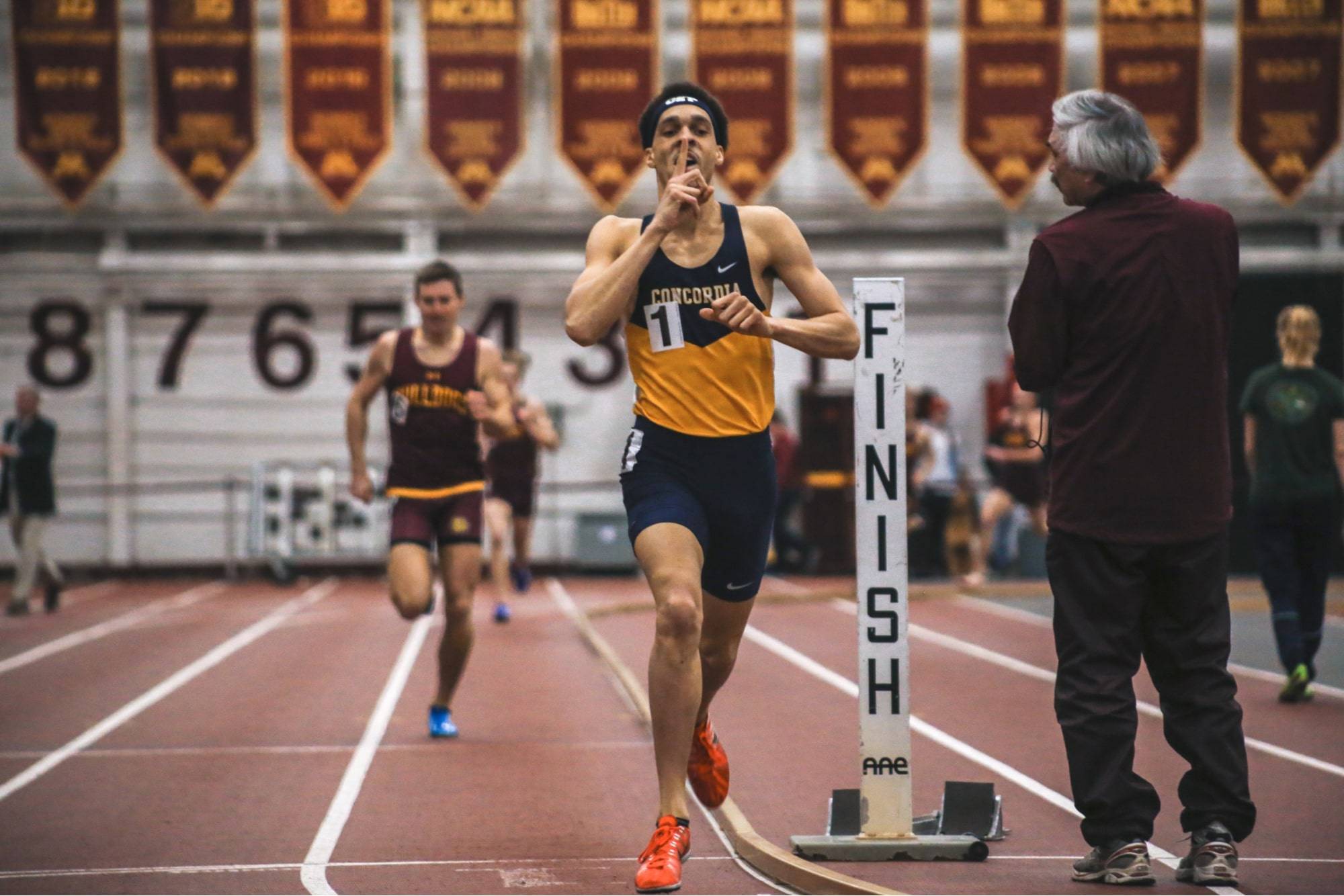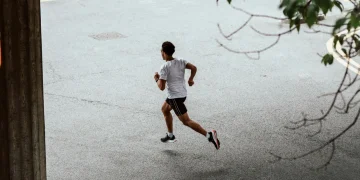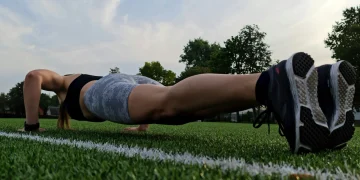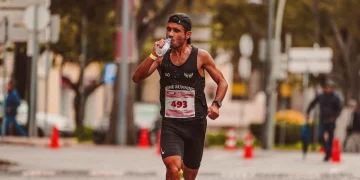Completing a long-distance run is an outstanding achievement, but it’s so satisfying to notice that you’re getting faster. And perhaps someday, you’ll even be the first to cross the finish line.
But what if you think you’ve reached your top-end speed and can’t get any faster? Being unable to increase running speed can be very frustrating and demotivating, but here’s the thing: it’s a common problem among runners, and we know how to help you overcome it.
But before we cover how to become a faster runner, let’s explore some key reasons why you might be hitting a performance plateau.
Why Am I Not Getting Faster at Running?
If you thought that becoming a fast runner was just about putting on your sneakers and going to the track, you couldn’t be more wrong. If you feel that you can’t run faster no matter how hard you try, you are probably making at least one of the following mistakes.
Here are the most common reasons runners hit the plateau and can’t get any faster.
1. No Pace Variety
Running the same distance at the same pace will not make you faster. The truth is that successful runners who train for long distances don’t focus only on long runs. According to fitness expert Meghan Takacs, it’s important to vary your training and run different distances at different speeds.
2. Too Low Mileage
How can you run faster and longer if you’re running just enough miles to complete the race of your choosing? To increase your speed, you should also train to run longer distances than the actual race.
3. No Consistency
If you really want to see improvement, you must follow your training schedule. Keep in mind that just two weeks of detraining leads to a decline in cardio and muscular fitness. So if you don’t run regularly, you’ll always be starting from scratch.
4. Inappropriate Lifestyle
Not enough sleep and too much stress harm both your mental and physical health. How can you expect to run faster if your body is exhausted?
5. No Recovery Runs
Rest is crucial when it comes to physical performance. So after a hard training day, you need to have a recovery day when you run much slower than usual.
How to Get Faster at Running
We’ve covered the basic reasons that prevent runners from getting faster. These can be successfully avoided or tackled by developing the right daily routine and sticking to the training program. But this is just the first step to becoming a long-distance star.
Now let’s take a look at some actionable tips for running faster.
Try Speed Training Workouts
The first thing you should do if you’re asking yourself, “How to run faster?” is to try speed training. This type of exercise was designed specifically to help runners gain speed. Usually, speed workouts consist of structured intervals.
You can start with 400-meter repeats.
- Do a 5 to 10-minute warm-up.
- Run a 400-meter lap at a 5K pace, then run another lap slowly to recover.
- Repeat the sequence two or three times and do a cool-down.
Aim to increase the number of repeats to five or six per training. After that, you can move on to 800-meter and 1-mile repeats that follow the same logic.
If you don’t have a treadmill or a track to measure the distance, you can try a 6-minute repeat.
- Start with a warm-up.
- Run for 6 minutes at a 5K pace and then 1 minute slowly to recover.
- Repeat the sequence 2 or 3 times.
- Complete the training with a cool-down.
Do Running Drills
“Why can’t I run fast?” is a question coaches hear all the time. And the simple answer is: “because you don’t incorporate speed drills into your training program.” Speed drills will not just make you faster but also improve your form and the mind/body connection, which are essential if you want to be a fast runner.
Here are the top 3 running exercises to increase speed.
- Running high knees.
Run while driving your knees as high as possible. This exercise will make you faster and improve your leg strength and flexibility.
- Carioca.
Face sideways and start moving in one direction by crossing the trailing leg in front of the other and then behind it. Change the direction of your movement to train the other leg.
- Butt-kicks.
Run while pushing your legs back so that your heels reach your butt.
If these exercises are not the favorite part of your running routine, don’t worry, speed drills are a must for sprinters. If you’re getting ready for a long-distance race, you should incorporate them into your 5K or marathon training plan every now and then.
Incorporate Tempo Runs
Body fatigue and soreness that lead to reduced speed and poor performance are caused by the accumulation of lactic acid in muscles. By developing a higher lactate threshold, you’ll be able to run faster.
A tempo run is one of the best exercises to increase running speed and stamina. Here’s how you do it:
- start with running at an easy pace for 5 to 10 minutes
- switch to a pace that is approximately 10 seconds slower than your regular 10K pace and run for 15 to 20 minutes
- complete the training with a 10-minute cool-down.
Switch to a Proper Diet
Research suggests that nutrition plays an important role in improving running speed. So make sure you have a balanced diet rich in macronutrients. To show good results, your body needs enough fuel, so you must consume plenty of carbs, especially a few hours before the run.
And don’t forget about protein-rich foods. You must eat enough protein to repair and grow your muscles. After all, how can you get faster without the right muscle mass?
Finally, the right fats will keep your joints healthy and strong.
If you want to try intermittent fasting to get faster at running, you should know that while this way of eating improves metabolic health, benefits the cardiovascular system, and helps lose weight, it doesn’t influence running performance. So if you’re considering this diet just to improve your speed, you should know that it won’t give you the result you might be expecting.
Choose The Right Training Program
While a half marathon training plan will get you ready for a 5K race, you must remember that it won’t include 5K speed training. So pick a program that targets the specific distance you aim to run. Otherwise, you’ll run at a pace suitable for a half-marathon or marathon and never get fast enough to finish first in a 5K race.
Final Thoughts
Breaking a running plateau may seem difficult, but we assure you it is possible. Incorporate the suggested exercises into your training program, get good rest, eat well, and you’ll notice yourself becoming faster each day. And don’t forget to listen to your body: whether it’s more time to recover or a little push to become better, you’ll feel what you need at the specific moment to reach your goal.






